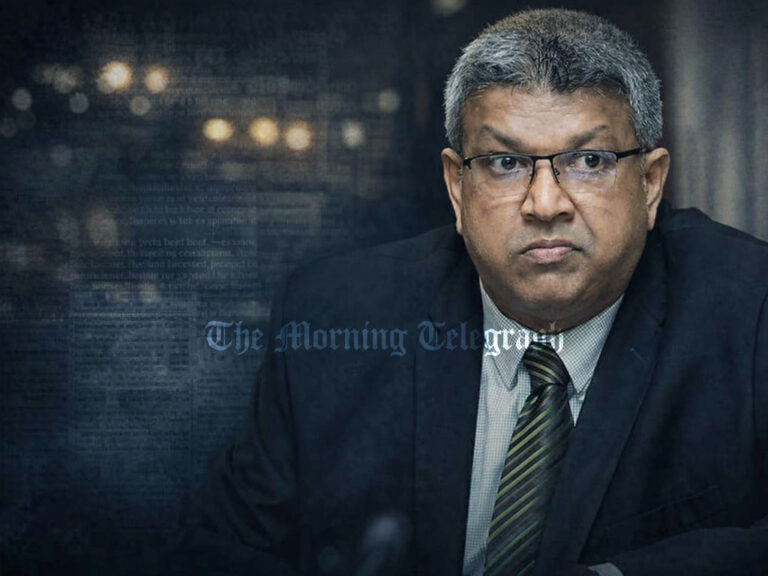
Colombo, Sri Lanka – Dilith Jayaweera, the presidential candidate of the ‘Sarvajana Balaya’ alliance and leader of the Mawbima Janatha Party (MJP), has strongly condemned the government’s proposal to sell shares of Sri Lanka Telecom (SLT). He described the plan as a “significant mistake” during a meeting with representatives of the SLT trade unions on Wednesday (21st August).
The discussion, which took place between Jayaweera and the Sri Lanka Telecom Engineers’ Association, centered on the union’s concerns about the potential privatization of the state-owned enterprise. Union representatives urged Jayaweera to intervene and prevent the sale, emphasizing the detrimental impact it could have on the nation’s telecommunication sector.
During the meeting, Jayaweera questioned the rationale behind the government’s decision to sell profitable state-owned enterprises like SLT. He argued that the government should focus on managing and regulating such sectors to generate financial benefits for the country, rather than selling them off.
“Why are public entrepreneurial-minded people selling these assets?” Jayaweera asked, challenging the logic behind the proposed sale.
He further drew comparisons with Singapore, noting how the Singaporean government, which operates with an entrepreneurial mindset, successfully owns and runs some of the most profitable businesses in the country. He pointed out that telecom is a regulated sector, and the Sri Lankan government has the power to regulate it and derive revenue, rather than resorting to privatization.
“The issue today is that the government has no substantial sources of income beyond taxes and fees, and is now looking to sell the remaining assets,” Jayaweera stated, expressing his concerns about the long-term implications of such sales.
He also criticized the government’s approach, suggesting that relying on tax revenue from private sector buyers after selling these assets is shortsighted. “The government’s argument is to collect some tax from the private sector after selling these assets, but taxes are just the crumbs that fall below. Profits are not made that way,” Jayaweera remarked, emphasizing the importance of retaining profitable state assets under government control.
Jayaweera’s stance reflects the broader opposition from the ‘Sarvajana Balaya’ alliance, which has positioned itself against the privatization of key state-owned enterprises. His comments are likely to resonate with those concerned about the economic direction of the country and the potential loss of control over critical national infrastructure.




